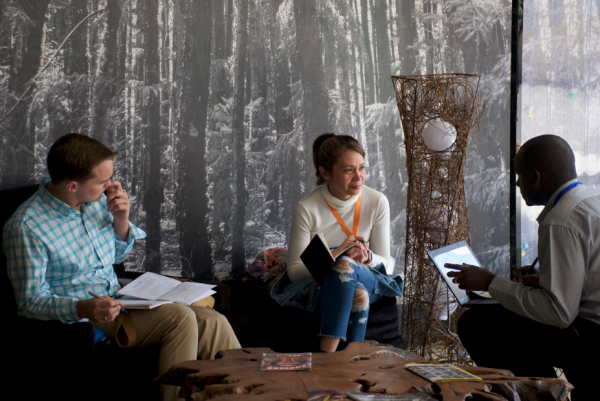Innovation hubs are spaces where new ideas come to life. They embody new possibilities for development.
While many in the development field are watching to see how they fare as a new phenomenon in the 'global south', a question that has come to my mind as I have engaged with them is: who is supporting them along their journey of growth and discovery?
If private and public institutions only collaborate with them to gain short term value at programmatic level, who will support them so that they develop at their core into institutions that can deliver what we hope for them to deliver?
Capacity gaps
At Making All Voices Count, we work towards strengthening governance communities locally, regionally and globally. We seek to use our position as a catalyst for connecting tech innovation communities with governance communities to bring about further innovation and learning around what is possible in the realm of governance when newly emerging tools and ways of thinking from the tech community are applied in the field of governance. It is in this spirit that we partner with local innovation hubs to strengthen the innovation ecosystem at country level.
In December 2016, managers from each of our seven partner hubs in Africa and Asia gathered in Nairobi for a Capacity Development Week. The hub managers were matched with a pool of mentors who have expertise in eight areas of focus that hubs navigate on a daily basis. These eight areas were identified by the hubs themselves as points where they faced capacity challenges: organisational development and strategy, operations, people management, social innovation, community building, monitoring and evaluation, and partnership building.
For five days, hubs met each of the mentors in a clinic-style format and addressed key issues within their own organisations.

Snapshot during the Capacity Development Week in Nairobi, Kenya. Photo: Making All Voices Count
By the end of the process, each hub crafted a strategy to grow their organisation by applying what they had learned in each of the mentorship areas. It proved to be a valuable exercise for the hubs, as they learned practical tools and methods to tackle management of their organisations.
Hubs need direct support
Hub managers and staff are often new to the world of startup incubation themselves. They are entrepreneurs who take the plunge into the unknown world of social innovation, incubation and acceleration and government engagement. In addition to crafting and implementing new programmes in new fields, they also grapple daily with the challenges inherent in running a business. They must apply relevant strategies to generate revenue to pay their bills and keep themselves open for business. They are in this way like the very startups they seek to incubate.
There is need for more direct and targeted support to hubs to strengthen their capacity as intermediaries, conveners and facilitators of innovation. It is in the interest of stakeholders who have an interest in working with hubs to develop their capacity to play their role effectively in the long-run.
A dedicated capacity development programme designed for hubs would go a long way in strengthening their role as catalysts of technology innovation in governance.